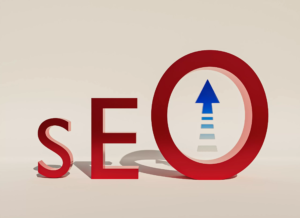Search engine optimization is a complex process that requires the expertise of professionals. SEO Services The Woodlands can help businesses increase website traffic and drive sales. It can also provide visibility and credibility for a business.

A reputable agency will use several resources and tools to conduct keyword research, site audits, competitor analysis, and performance tracking. They will also provide detailed analytics and reports that offer insights into the effectiveness of their strategies.
Keyword research is a fundamental component of SEO Services. It involves identifying the search terms your audience uses to find your products and services online. This information can be used to optimize your website content and improve your ranking on search engine results pages (SERPs).
Keyword research requires a deep understanding of your business, who your audiences are, and their needs. It also focuses on understanding the search intent of your audiences to identify keywords that will drive the best traffic and conversions. While a lot of people cut corners in this area, there are a few things you can do to ensure your keyword research is accurate and relevant.
Firstly, you need to determine what your niche is. This is a crucial step in defining your SEO goals and content strategy. For example, if your audience searches for a specific product or service that you don’t provide, they will turn to a competitor who does. This is why it’s important to understand the intent of your audiences as well as their questions and concerns.
To get started, you can use a free tool such as Rank Math to analyze your competitors and identify the keywords they’re ranking for. You can also use the Google Keyword Planner to find the most popular keywords and analyze competition. Several tools, such as AnswerThePublic and Keywords Everywhere, provide a variety of useful data on search volume, competitiveness, and LSI.
As the industry continues to evolve, keyword research now prioritizes search intent over just the words themselves. This helps your business create targeted content that answers the most searched questions and guides your potential customers through the buying journey. Using the right keywords can increase brand trust and customer affinity, and can help you dominate the SERPs.
On-page optimization
On-page optimization is the process of improving the content of a web page to increase its search engine rankings. This includes the use of relevant keywords, proper page structure, and logical navigation. It also involves optimizing technical elements like site speed and mobile responsiveness. While on-page optimization can be a time-consuming and challenging task, it is a critical part of any SEO campaign.
The most important on-page SEO factor is the title tag, which appears in search engine results pages (SERPs). A well-written title tag and meta description will encourage people to click on your listing. This will increase your CTR, which in turn leads to a higher search engine ranking.
Other on-page SEO factors include the use of internal links, keyword research, and website structure. The best way to optimize these factors is to focus on creating quality content that addresses the needs of your target audience. For example, if you’re targeting the keywords “how to make a cake,” you should provide detailed recipe information.
Another key on-page SEO element is the use of images. Search engines scan images to determine a topic and index them accordingly. This is why it’s crucial to optimize the image file size and alt text. Additionally, you should avoid using large images or graphics, as they can slow down the load time of your website.
As the internet continues to evolve, on-page SEO has become more complex. While keyword usage is still important, prescriptive methods of using specific words in particular locations a certain number of times are no longer effective. Today, search engines can understand a page’s meaning by looking at the context of those words, synonyms, and even the number of times the keyword is repeated.
Content creation
Whether you’re creating a blog post, infographic, or video, great website content writing is essential for SEO. By using keyword research and other on-page optimization techniques, you can ensure that your content is both searchable and relevant to your audience. You’ll also want to include relevant links in your content, as this will help improve your SEO and increase your traffic.
A quality website also plays a crucial role in SEO, as slow-loading pages or unresponsive designs can deter users and negatively impact your ranking. Make sure to prioritize optimizing your site’s performance, ensuring that page load times are fast and that your site is mobile-friendly. This will allow your audience to easily access your content, increasing engagement and reducing your bounce rate.
Search engine algorithms are complex, and they change often. In order to remain competitive, businesses need to constantly update their content to align with search engines’ guidelines. SEO and content aren’t just about algorithms; they embody a brand’s intent, values, and promises. SEO translates this message and ensures that it is visible to those who seek it, while content gives the message a voice and personality.
The content-creation process is an iterative one, so it’s important to keep your goals in mind throughout the entire process. To do so, start by clearly defining what you’re trying to achieve. This can help you narrow down your topic/keyword research and create a more focused, effective plan. It can also help you evaluate your progress throughout the process. For example, if your content isn’t getting traction on social media or in search, it may be time to reassess your strategy. Also, don’t forget to evaluate the effectiveness of your content by monitoring its performance over time.
Link building
Link building is the process of acquiring one-way hyperlinks from other websites to your own website in order to increase search engine visibility. This is a core component of SEO, and it’s an important factor in Google’s ranking algorithms. Backlinks are seen as a vote of confidence by search engines that your page is popular and worthwhile, and they’re used to calculate the authority of a page.
There are several different methods of link building, including content marketing, resource page link building, and email outreach. These strategies vary in complexity and require a variety of skills to execute properly. These techniques can also be used to build brand awareness, which can help in the long run by increasing your brand’s credibility and establishing you as an authority in your industry.
Before Google’s famous PageRank algorithm, search engines ranked pages based on their content alone. The PageRank algorithm changed the game, however, by introducing a new way to rank webpages: links. Getting a lot of quality, relevant links from other websites is the best way to improve your search rankings.
Some of the more common link building tactics include submitting your website to web directories and guest posting. These methods were once effective, but as they were abused by SEOs, Google started to discount them. Today, you should only use these tactics if they’re relevant to your business and are a part of your overall SEO strategy.
Another great method of link building is creating resource pages, which are dedicated to curating and listing helpful resources, tools, or articles. This is a great way to earn backlinks because it shows that you’re contributing value to other websites. You can also use tools like Semrush to find high-quality prospects, which will help you identify websites that are a good fit for your resource pages.
Analytics
SEO analytics provides insights into how your website is performing on search engines. It helps you track your goals, understand how your optimizations are impacting performance, and identify new opportunities. It also shows how to make better decisions and take more informed actions. This is essential for maximizing the return on your investment in SEO services.
SEO Services are not a one-time task, and they require consistent attention to stay ahead of the competition. A good agency will provide you with an in-depth analysis of your site’s current position, and a roadmap to improve it. They will also include ongoing support and maintenance to maximize the effectiveness of your SEO efforts.
The first step in SEO analytics is identifying your KPIs. This involves collecting data on relevant variables, such as organic traffic and conversions, to identify correlations between them. Once you have collected this data, you can use regression analysis to determine the most significant variables that influence SEO performance. This will help you predict future performance, allowing you to optimize your campaign to achieve specific results.
A great way to monitor your SEO metrics is by using a dashboard tool. These tools allow you to create compelling reports and charts that make it easy to analyze your performance. You can even combine data from multiple sources, including Google Analytics and Search Console. A good example is Looker Studio, which allows you to transform complex data into a clear and simple visual report. This makes it easier for non-technical users to understand the results of your SEO strategy. It also lets you set goals and see the progress of your campaigns over time. You can even customize the user interface to meet your needs.
